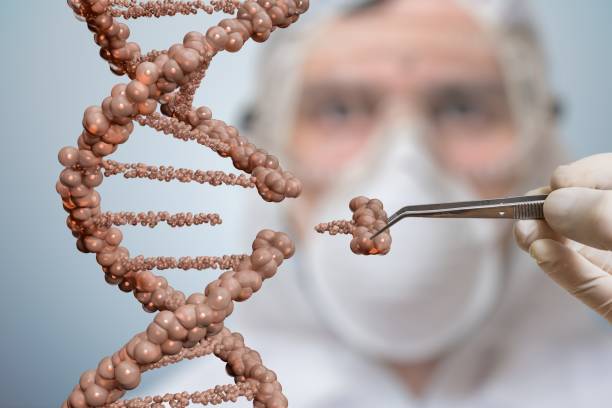In California, the first patient has been treated by editing his own gene in order to correct a gene permanently in his liver cells.
Brian Madeux, aged 44, is suffering from a single-gene disease, namely Hunter syndrome[1]. On Monday, he received billions of copies of the corrected gene by intravenous injection. An editing tool was used to allow the right area of his DNA to be cut in order to insert the correct gene in his hepatic cells. This will not repair the damage already sustained but he hopes he will be able to stop weekly treatments. “I’m ready to take this risk”. “I hope that it will help me and others (…) I’ve waited all my life for a cure,” he announced.
Unlike other previously tested genome editing therapies[2], this is the first of its kind because the genetic modification takes place in vivo. This means that “there is no way back and no way of erasing the errors that editing could cause”. Doctors have not used CRISPR, but another pair of “molecular scissors”, namely zinc finger nucleases. They chose a viral carrier to administer it. According to Brian, thirty adults will be involved in this safety trial. Ultimately, the therapy was designed to treat very young children before the disease can cause irreparable damage.
The Sangamo Therapeutics company is leading the trial, which has been approved by the National Institutes of Health. It targets two metabolic diseases and haemophilia – disorders which have proved incurable to date (see Genome printing: Sangamo embarks on clinical trials). Prior tests conducted in animals have proved to be “highly encouraging”. However, the risks are as yet unknown and some people are accusing the company of “experimenting with nature”. The viral carrier can trigger an immune reaction and the insertion of a new gene could have unforeseen effects. Last but not least, some people are afraid that genetic changes will also affect patients’ gametes and therefore future generations.
[1] Degenerative disease that mainly affects men because it is carried by the X chromosome. It triggers an iduronate-2-sulfatase enzyme deficiency, which causes symptoms in a large number of organs.
[2] Changing the genome of the patient’s cells in vitro – these cells are then reinjected into the patient.
ABC news, Marylinn Marchione (15/11/2017)

